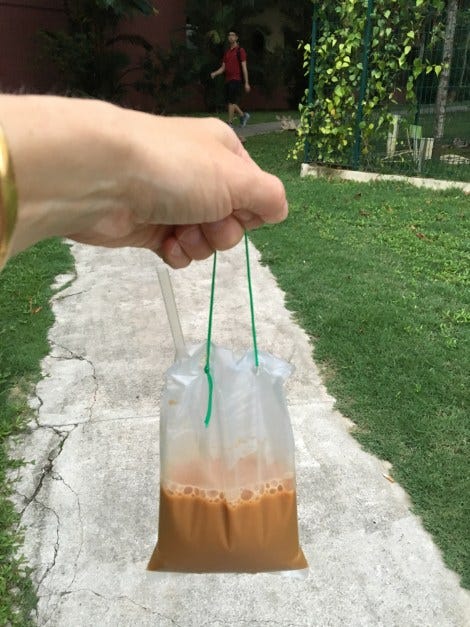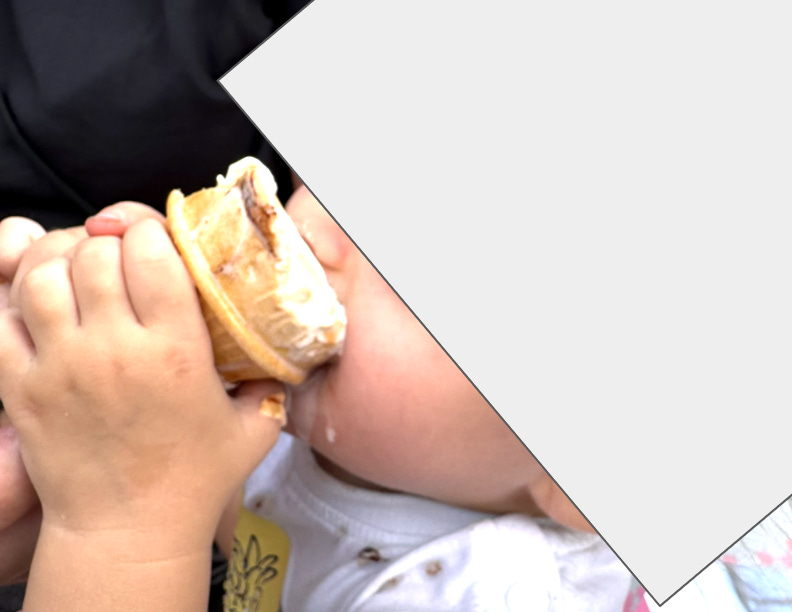We will never know what would have otherwise happened
Photo is me at age 2. Credit: My parents
Counterfactual is, in my opinion, a very ugly word for the concept it describes. Other more descriptive ways to describe the concept could be ‘alternative scenario’, or ‘what would have otherwise happened’. Most of the time it’s impossible to know. Many, many hot-button issues and strong debates are disagreements about counterfactuals. For an initial basis, here are some examples (thanks Magicdoor).
Common Counterfactual Traps (Errors in “What If” Thinking)
This is about mistakes people make when thinking about how things might have been different if something in the past had changed.
Hindsight Bias / “Knew-It-All-Along” Effect: Looking back after an event and believing the outcome was easily predictable, leading to unrealistic “If only I had…” thoughts.
Ignoring Ripple Effects (Oversimplification): Thinking that changing one past event would only produce the desired positive outcome, without considering other potential negative or complex consequences that might also have occurred. (e.g., “If that one policy hadn’t passed, everything would be better now,” ignoring other factors.)
Focusing on a Single Cause: Blaming or crediting a single past action for a complex outcome, when many factors were likely involved. (e.g., “If I hadn’t missed that one meeting, the whole project wouldn’t have failed.”)
Outcome Bias: Judging a past decision solely based on its outcome, rather than the quality of the decision-making process at the time. This leads to flawed counterfactuals. (e.g., Making a risky bet that paid off and thinking “See, it was the right decision!” - the counterfactual “If I hadn’t made that bet, I’d be worse off” ignores the initial risk.)
Wishful Thinking Counterfactuals: Imagining alternative scenarios that are highly improbable or based purely on desire, not realistic possibilities. (e.g., “If I had just bought that lottery ticket, I definitely would have won the jackpot.”)
Assuming Perfect Execution: When imagining an alternative action, assuming it would have been carried out perfectly without any hitches or unforeseen problems. (e.g., “If only we had switched to Plan B, it would have worked flawlessly.”)
The examples probably seem obvious, and might not clearly surface the core problem: Most of the time, we can’t know the counterfactual. There is no way of knowing how things would have played out if we did something different. But since our brains are narrative machines, it’s easy to think that we do. A friend who had some stomach issues decided to make a set of dietary changes. Her stomach issues went away. She is now quote “100% sure that is the solution” and she “wants to help other people as well.” But apart from having made a number of changes at the same time, which means we don’t know which particular thing caused the effect, it could also have been something completely different that caused the issues and went away: stress, germs. And even if it was a microbiome issue, that might also have gone away by itself regardless of the diet changes.
Much of the scientific method concerns itself with dealing with this problem. When we do A/B testing in marketing, the idea is to create a parallel timeline where we did the other thing. In timeline A, we change nothing (setting up the counterfactual, or ‘control group’) and in timeline B we do what we think will work better (the treatment). In medicine the idea of the ‘double blind1 placebo controlled study’ is likewise to create an accurate counterfactual for the treatment.
Even in these cases, 90% of discussions about results are still about whether the control group accurately reflects the counterfactual: the groups are not quite the same, sample size too small, didn’t test long enough, confounding variables are present. But when it comes to the types of things that we really want to know, the variables are usually so confounded that it becomes really really hard to untangle what we actually have evidence for.
As parents, there a lots of times when you’re trying to do the best thing for your kids, but there is uncertainty about what the best thing is. I just got back from a family vacation where we had tons of conversations about what my parents did that made me and my sister who we are now, and what we should do to help our kids become happy, healthy and successful by their own measures. But we constantly run into the problem that we don’t know any of the counterfactuals. To illustrate, here first are some child raising decisions where the situation is quite clear:
What is the best way to sleep train a baby? It doesn’t seem to matter much, but sleep trained babies and their parents! have lower cortisol levels in their saliva than non-trained ones.
Is hitting a child harmful in the long run? Yes.
Much more complicated already: Are time-outs a harmful way to discipline kids? Apparently not, although I’m not a fan. But also, it depends on how. It depends on the parent-child relationship. It can be done in a harmful way. Maybe. But if parents do time-outs in a harmful way, they are probably relating to the child in an immature and damaging way even outside of the time-outs?
What is the impact of early daycare on kids later in life? There is lots of contradictory evidence. A study on European kids showed mild positive effects. It obviously depends on the quality of the daycare (but what is quality and how do you measure it?)2.
How bad are microplastics for your health? In much of Asia people drink tea and coffee from flimsy plastic bags.
This should make any European millennial scream in microplastic outrage. What diseases are more common in Asian people? In 2025, Singapore has a slightly higher life expectancy than the Netherlands. Singapore's life expectancy is estimated to be 82.90, while the Netherlands has a life expectancy of 82.45. So… it doesn’t matter? I don’t know. Are microplastics the new asbestos or lead? Almost certainly not. But is it better to try and avoid them a bit? Maybe, why not.
How about sugar for young kids? High sugar intake in kids is associated with obesity and metabolic problems later in life. But correlation is not causation. While it is possible to have metabolic syndrome without being obese, it is rare. It is also necessary to eat A LOT of high-sugar food for a LONG TIME to develop metabolic problems. So our kids are on a diet of whole, mostly organic foods, and also we are quite loose with ice creams and donuts and other glaringly unhealthy things like that.
It is possible to have a healthy relationship to food, including sugar, without becoming a monk. Also, I was being fed 1985 Orange Juice mixed with Liga (processed cookies) when I was 3 months old. Are my kids getting more or less sugar than I did? Maybe a little bit less, I think.
Would I be a better, more healthy person now at 39 if I had gotten less sugar and microplastics as a kid? It is impossible to know the counterfactual… Parents are faced with 100s of decisions and an avalanche of content claiming the one way is the best. I think, for the most part, it all matters a lot less than some people seem to think. And the happiest parents and kids around me are generally some combination of tight-loose. Healthy food most days and plenty of cheat days with pizza and fries. The child strongly prefers her brother’s old plastic water bottle over the special microplastic free silicon one (which btw also is leaky AF). Ok, so be it then. Moments after eating some organic pesticide free fruit, you catch the 3 year old munching the paint off a toy excavator (“don’t do that, it’s not good for you to eat paint”, but also :shrug) while the 1 year old is licking a bicycle tire. The kids are going to be just fine!
Neither the people giving the drug, nor the people taking it, know which is the placebo. Hence, double blind.
In my personal opinion, most of the difference in outcome seems best explained by a bunch of ideas under Attachment Theory.


